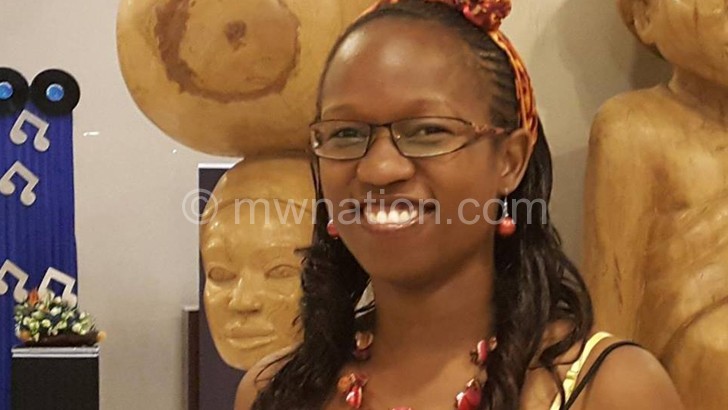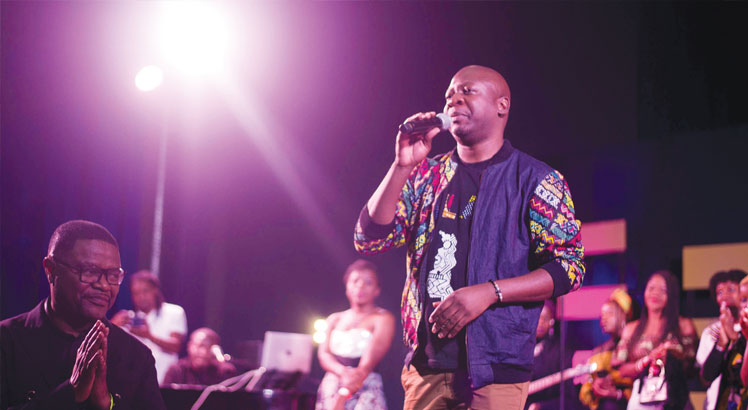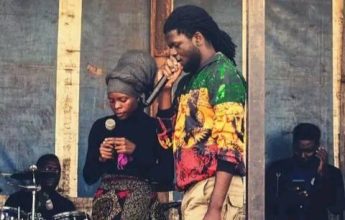I write whatever inspires me
Living in Blantyre, Malawi, Ekari Mbvundula is a budding freelance writer whose talent is one to watch. Her work crosses literary genres, but she has a keen interest in science fiction. Her story Montague’s Last has recently been published in the tri-monthly magazine, Omenana. And last month, she was a finalist in the all Africa writing competition The Writer. She talked to Joana Woods from online publication Africa in Words. Here, she tells us a bit about the story and her career so far.

When did you begin writing?
I’ve been writing for as long as I can remember. I had a poem published in the children’s section of the Daily Times or The Nation when I was seven-years-old. The other day I stumbled upon some early stories I didn’t even remember writing. I started my first novel when I was 14-years-old. I haven’t finished it yet! But I am working on it, it’s one of my writing goals.
What kind of literature do you write most?
I love fantasy. It’s the genre which inspired me to want to create worlds that other people can get lost in, just like I found my escape in my favourite writers’ works. However, I write whatever inspires me. Sometimes I write stories that aren’t fantasy, and I like that. I have been writing using the short story format mainly, but I think I have a writing stamina where I can push for a 50 000 word novel. I intend to spend my writing career trying my hand at least once in historical drama, horror, comic books, humour, romance and anything else which might challenge me.
So, you mostly enjoy writing fiction? Have you written any non-fiction?
I wrote an article called The Clock Tower, the Gun and the Boat for a local tourism magazine called Ulendo Magazine. It was about some of the history of Mangochi. Most tourists go to Mangochi for the beach resorts, but few people are aware that we have a canon monument in the roundabout in town, a fascinating little museum which has pre-colonial and tribal artifacts, and an entire boat inside! I learnt a lot myself through writing this.
One of your stories was just published. Can you tell us a bit about it? Where did the idea for such a story come from?
My short story Montague’s Last was published in the third issue of Omenana, a free-to-download Nigerian based online speculative fiction magazine which has captured some of the best recent fantasy works by African writers. I’m truly honoured to be included among their ranks.
The story is about an 18th century African slave in a French dungeon, who is guilty of heinous crimes and wishes to make his last act alive an act of redemption. It was an unusual choice for me, since prior to that I tended to write mainly humour and emphasised fantasy elements.
This is quite a dark story, and fantasy is only a minor aspect. As for the idea… stories are as unique as children, and ideas often come from a wide variety of places. I tend to write down my ideas as soon as they occur to me, or else I risk losing them forever. They can start as merely a cool concept, a fascinating character, a deep feeling, or a sentence I really like.
Montague’s Last starts with an isolated sentence: “They say great things are achieved in the dead of night.” I literally had that sentence alone on a Word document for… months, or a year maybe. That’s not abnormal, I have plenty of ideas which are sometimes as short as a sentence, other times I flesh them out right away in three or more pages, with the intention to return to them at a later day.
Would you call yourself as a ‘Malawian writer’?
I am a writer who happened to be Malawian/African/female/young, and so on, but I don’t want my identity to define what I am “allowed” to write about. I should be able to write about a sentient vegetable colony on Venus if I want to. I have an affinity to fantasy, and I may touch on Malawi here and there, but I’m not restricted by it. Some of my readers have requested that I write more about Malawi, and to them I say that I understand your perspective, and I will write about Malawi in various contexts, but it will not be my sole topic. Western writers bear no such burden of being restricted to setting their stories in their home countries. The reason behind that is too complex to get into, but to simplify it; readers want to see stories which are relatable to their everyday lives, and those are scarce for Malawians. I get that. But one is much more likely to enjoy my work if you come with no expectations.
You write literature. Do you also perform it? I’m wondering about oral literary traditions in Malawi. Where and with whom, if so?
Glad you asked! I love performing, although I get little opportunity to do so these days. My blog post is called ‘Ekari Mbvundula: Writer and Performer’, but it’s been heavier on the writing. I haven’t yet had the opportunity to perform in Malawi, so I cannot tell you about local oral literary traditions, not before I have done my own research. My latest greatest performance was at a drama competition at the University of Cape Town in 2008, of a play called …Aut Mortatis Conans (…Or Die Trying) which I wrote myself, and sort of fell into the lead role.
It was actually the second time I had performed it, the first was in high school where I played a minor role. I wasn’t able to save any copies of the high school play, so I did the most sensible thing I could think of and rewrote it from memory. I hadn’t planned on playing a lead role ever, because to be honest it never occurred to me that I was capable of playing lead, but I wound up playing it through fate and circumstance I suppose,… and I got nominated for lead actress. My co-actor actually won lead actress, but I handed it to her happily, after all it was her character that had to endure getting slapped (for real) by my character every rehearsal and performance! I was the villain in case that wasn’t obvious. I hope to get back onto the stage again soon as I find it a fascinating way to explore a story. Every writer performs a mini play in their minds every time they put a tale to paper anyway, so I don’t think performing is that much of a stretch for us – once we get over stage fright. n





